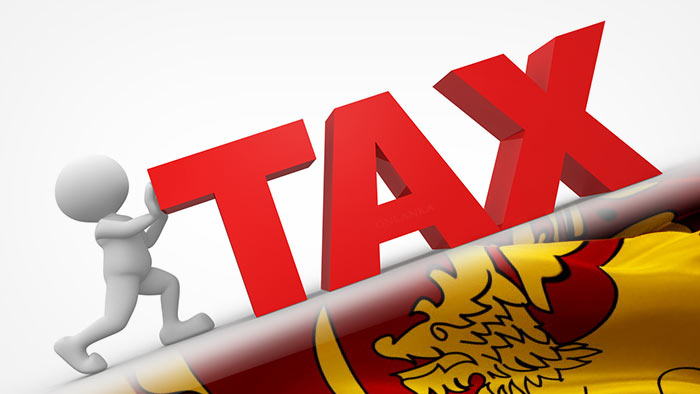Key income tax changes proposed in Inland Revenue (Amendment) Bill

The draft Amendment Bill to revise the Inland Revenue Act was published in the government gazette on Tuesday (October 12), proposing key changes to the income tax.
The gazette notification was issued by President Ranil Wickremesinghe in his capacity as the Minister of Finance, Economic Stabilisation and National Policies to amend the Inland Revenue Act, No.24 of 2017.
According to the draft proposal, it has been decided to tax people based on different income-earning criteria.
The income tax payable by a person for the year of assessment commencing from April 01, 2022, is calculated separately for two periods of the year of assessment as the first six months and the second six months.
As such, the taxable sum from the income of a person for the first 06 months from April 01, 2022, to September 30, 2022, begins with people earning an annual income exceeding Rs. 1.5 million.
Thereby, a tax will not be charged from anyone with an annual income of Rs. 1.5 million or lower. Those who earn an annual income between Rs. 1.5 million and Rs. 3 million will be subject to a tax of Rs. 90,000 and 12% of the amount in excess of Rs. 1.5 million. In addition, people with an annual income above Rs. 3 million will be required to pay a tax of Rs. 270,000 and 18% of the amount in excess of Rs. 3 million.
Meanwhile, for the second 06 months from October 01, 2022, to March 31, 2023, it has been proposed not to impose a tax on people with an annual income not exceeding Rs. 250,000. All those with an annual income above Rs. 250,000 but not exceeding Rs. 500,000 will be required to pay a tax of Rs. 15,000 and 12% of the amount in excess of Rs. 250,000.
For those with an annual income over Rs. 500,000 and below Rs. 750,000 will be charged a tax of Rs. 45,000 and 18% of the amount in excess of Rs. 500,000. Further, people who earn more than Rs. 750,000 but do not exceed Rs. 1 million annually will be subject to a tax of Rs. 90,000 plus 24% of the amount in excess of Rs. 750,000.
For people with an annual income of over Rs. 1 million but not exceeding Rs. 1.25 million, a tax of Rs. 150,000 and 30% of the amount in excess of Rs. 1 million will be charged. If the annual income exceeds Rs. 1.25 million, the tax payable will be Rs. 225,000 plus 36% of the amount in excess of Rs. 1.25 million.
Meanwhile, the taxable income of a person for a year of assessment commencing from April 01, 2023, will be as follows:
- Income not exceeding Rs. 500,000 – Tax payable is 6% of the amount in excess of Rs. 0
- Income exceeding Rs. 500,000 but not exceeding Rs. 1 million – Tax payable is Rs. 30,000 plus 12% of the amount in excess of Rs. 500,000
- Income exceeding Rs. 1 million but not exceeding Rs. 1.5 million – Tax payable is Rs. 90,000 plus 18% of the amount in excess of Rs. 1 million
- Income exceeding Rs. 1.5 million but not exceeding Rs. 2 million – Tax payable is Rs. 180,000 plus 24% of the amount in excess of Rs. 1.5 million
- Income exceeding Rs. 2 million but not exceeding Rs. 2.5 million – Tax payable is Rs. 300,000 plus 30% of the amount in excess of Rs. 2 million
- Income exceeding Rs. 2.5 million – Tax payable is Rs. 450,000 plus 36% of the amount in excess of Rs. Rs. 2.5 million
The most notable feature of the draft proposal is the revision of the annual personal income tax subject to a tax-free threshold being reduced from Rs. 3 million to Rs. 1.2 million.
Read the Gazette notification from here
(Courtesy: Ada Derana)
Latest Headlines in Sri Lanka
- Fuel distributors urged to resume operations amid talks with CPC March 3, 2025
- Nominations for 2025 Local Government Elections open March 17, 2025 March 3, 2025
- CID complaint demands probe into fuel distributors’ Rs. 37 Billion scam March 3, 2025
- Fuel distribution smooth as CPC ensures adequate stocks until August 2025 March 3, 2025
- Sri Lanka to hold Sacred Tooth Relic exposition after 16 years March 3, 2025


